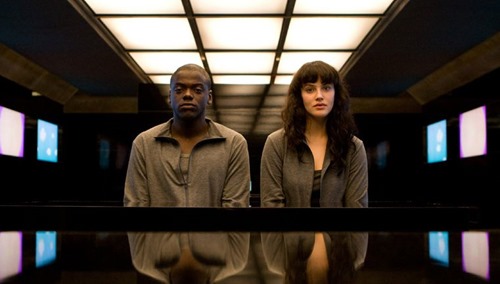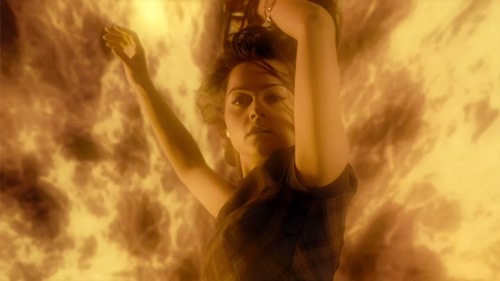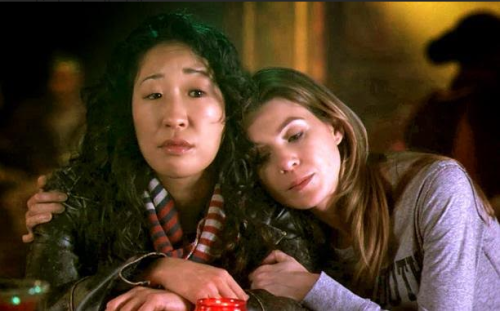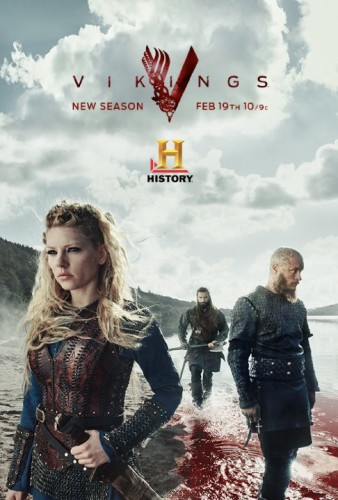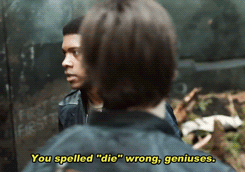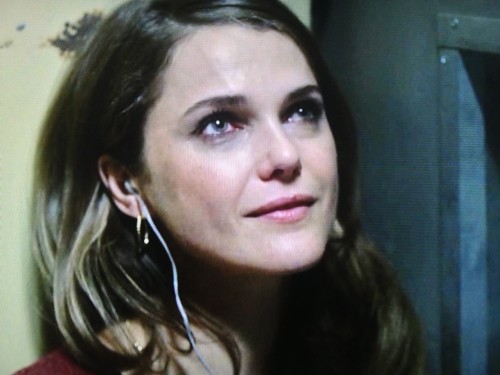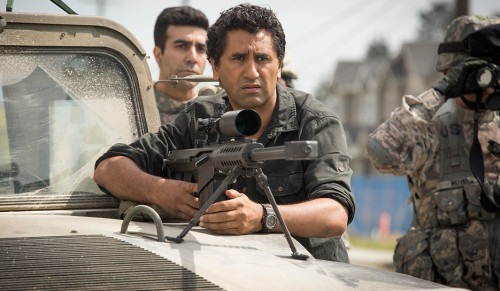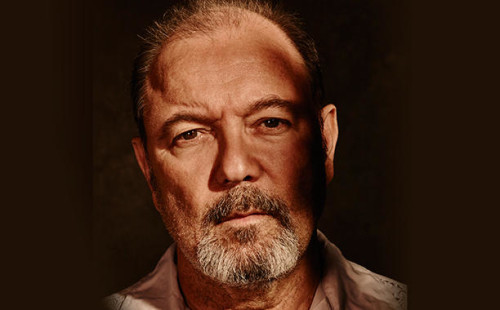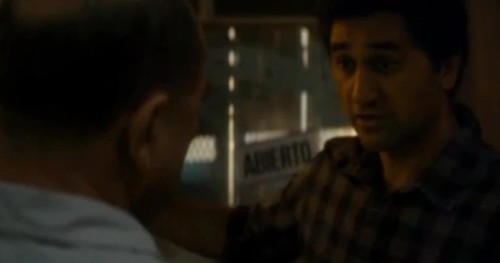Written by Katherine Murray. Spoilers ahead.
[Trigger warning: discussion of bestiality and sexual assault]
The first season of the British sci-fi show Black Mirror frames its stories through an unintentionally narrow and myopic point of view, just like the first season of HBO’s Girls. For some reason, though, Black Mirror’s extremely specific point of view is mistaken as being universal, while the extremely specific point of view offered by Girls is not.
Black Mirror is sort of a cult-hit TV show, so far consisting of two seasons with three episodes each, and a Christmas special starring Jon Hamm. The series first aired in the UK in 2011, but only made its way to North America and Netflix more recently. Much like The Twilight Zone, each episode tells a stand-alone story about a world slightly different from our own, where something creepy and terrible happens. Specifically, Black Mirror is focussed on technology and how inventions like social media, robots, virtual currency, and computer animation can be put to destructive use. The three episodes that make up the first season are “The National Anthem,” “Fifteen Million Merits,” and “The Entire History of You” – each of which follows the same broad pattern: the first twenty minutes are fascinating and unsettling, and then you realize that this entire fabricated universe exists to screw up some guy’s sex life.
Let me break it down:
- In “The National Anthem,” the Prime Minister awakens to discover that someone has kidnapped the princess and posted a ransom video on YouTube. The terrorists are threatening to kill her unless he gives into their ridiculous demands and has sex with a pig on national television. This is an extreme situation that touches on a very serious question, about which there is much debate in real life: how do you deal with terrorist demands? There’s a very solid school of thought that says you should never give in to terrorist demands because that makes terrorism seem like a good way to get what you want, and another very solid school of thought that says that, if giving in to small demands could save a person’s life, you have a duty to – wait, that’s not what this story’s about. After about twenty minutes, questions of terrorism are completely pushed aside and the story becomes 100% about whether this one particular guy gets pressured into bestiality and whether his wife will forgive him.
- In “Fifteen Million Merits” – which, in fairness, has important things to say about class stratification – working class people peddle bikes all day to supply power to the one percent. Their only hope of escape is to compete on an X-Factor-like TV show, which they have been convinced will allow the most talented among them to become celebrities. A working class guy falls in love with a working class girl who has a beautiful singing voice, and he uses all the credits he’s earned from peddling the bike to pay the super expensive contest entry fee so that she can compete and maybe have a better life. When she competes, the judges tell her that they already have enough singers, but she’d make a really good porn star, and she’s pressured into accepting their offer because she knows this is her only chance to not peddle the bikes. Her life becomes a hellish nightmare of drugs and X-rated encounters with strangers and everyone tells her that she should be grateful – but, wait, this episode isn’t about that. This episode is about how the X-Factor-like TV show robbed the working class man of the one thing that was good and pure in his life and perverted it by making it dirty and a porn star. The whole thing builds to a big, dramatic speech where he complains about everything they took from him, because that’s the most important part of what happened.
- In “The Entire History of You,” people have chips in their brains that make objective recordings of everything they see, allowing them to play their conversations and experiences back later, looking for the truth. Imagine all the ways that that technology would change the world! What would become of law, education, history, and politics? What would happen if someone could hack your objective memories? What about the people who decide to forego the implant or have it removed? What an interesting cultural divide – but, wait. This story is actually about how some particular guy gets ridiculously jealous after realizing that his wife’s ex-boyfriend plays back recordings of what it was like to have sex with her when he jerks off. Because, apparently, remembering past sexual encounters when you masturbate is a new technology requiring a brain implant.
All of these stories are told from the really particular point of view of a heterosexual man who’s a little bit weird and anxious about sex, and all larger societal concerns and conflicts are pushed aside in favour of focussing on how world events and technologies will affect whether or not he can be with the woman he wants. “The National Anthem,” particularly, is an unintentionally rich vein of data for psychoanalysis – personally, I’m fascinated by the mind that thought, “My greatest fear about the internet is that terrorists will publically pressure me to engage in bestiality. What do you do in that situation? You basically have no choice!” But the point is that it’s really specific. It’s not actually a representation of universal thoughts and fears and experiences that everybody thinks and feels. And yet, the critical appraisal of Black Mirror would lead you to believe that it’s somehow more reflective of our shared humanity than Girls.
I’m sure I don’t need to spend five paragraphs explaining what Girls is, but, when it premiered, it was a highly anticipated series that met with a lot of backlash. The backlash was mostly because the series was framed – through advertising and pre-premiere interviews – as a story that was broadly about women in generation Y, when the content was actually a very specific, idiosyncratic story about what the show-runner’s life had been like in young adulthood. Like, she even cast her real-life friends in those roles.
While I’ve grown to like Girls a lot in the years since it premiered, I’ll admit that I was one of the people put-off by the opening episodes. There’s one early review that describes the characters as working class, because one of them has an unpaid internship, and that makes me laugh out loud, because working for free is a bourgeois luxury. It’s not something that working class people can do. And, the off-putting thing about Girls, at least in its first season, was that it took very specific experiences like that – experiences that only people with a certain amount of wealth and privilege ever have – and behaved as though they were universal coming-of-age rituals. The scene that really got me was the one in the first episode, where the main character casually asks her parents to pay for her apartment, like that’s a normal thing that happens.
Both Girls and Black Mirror improve after the first season – and Girls is now one of the shows I look forward to most every year – but my visceral reaction to the opening episodes was the same in both cases. I felt like I was being excluded from something I was supposed to belong to, and told that a group loosely defined as “Everyone” did not include people like me.
I know that lots of viewers had a similar reaction to Girls, not only for reasons of class, but also because it’s strange that the characters live in a diverse, densely-populated city like New York and only ever socialize with white people. But, reviews of Black Mirror usually don’t mention anything about the point of view. That’s partly because Girls is called Girls and Black Mirror is called Black Mirror. It’s also partly because both seasons of Black Mirror dropped in North America around the same time, so viewers had a chance to appreciate how the series grew in its second season. But, let’s be real – it’s also because stories about men are routinely accepted as being stories about human beings in general, while stories about women are immediately seen as more particular.
A few weeks ago, Linda Holmes said this great thing on Pop Culture Happy Hour about how one of the narrative devices in The Big Short that was specifically intended to draw in the viewer and make the story more relatable for him backfired and made her feel alienated because it became clear that the filmmakers thought “viewer” was the same as “heterosexual man.” While there are some people who felt alienated from Girls the moment they heard the word “girls,” there are other people, like me, who only felt alienated once it turned out that “girls” meant “heterosexual WASP/white Jewish middleclass women,” at which point it felt like a bait-and-switch. In the case of Black Mirror, my suspicion is that the focus on the sex life of Some Particular Straight Dude is supposed to be a way to draw the viewer into the story, and make the stakes and circumstances of the Big Ephemeral Sci-Fi Ideas concrete, and I think the reason that alienates me is that it reveals an assumption that the viewer is also Some Particular Straight Dude and will be able to relate.
The second season of Black Mirror does expand its focus and tell two of its three stories from the point of view of Some Particular Straight Woman – the first of whom is also a little bit weird about sex and the second of whom is part of the show’s most controversial episode, “White Bear.” Without getting into a lot of spoilers for “White Bear,” I’ll confess that, even though I think it’s a good script, I had a hard time going along with it, because the series had failed to build any trust with me before it took these risks. Because I felt alienated by the first season, I went into the second season full of suspicion, and it was hard for me to figure out whether “White Bear” was a story about the horrific corruption of the justice system or about how creepy-cool it is to watch some woman get tortured for hours and hours.
I don’t think there’s anything inherently wrong with making a show that’s just about hamsters chasing themselves through some particular writer’s mind, but I find it a little bit annoying that the hamsters in Charlie Broker’s mind are supposedly more reflective of our shared humanity than the hamsters in Lena Dunham’s mind, when they both look equally foreign to me. There are a few experiences that are truly universal – we all love, we all die, we all face up to certain harsh realities of life – but, in an increasingly global community, and in a world where we are more and more aware of others’ voices, it doesn’t make sense to keep pretending that stories about what it’s like to belong to any specific race or class or gender or sexual orientation are stories that cover the whole territory of what it’s like to be a person. My issue isn’t that Black Mirror and Girls shouldn’t exist – it’s that, when we talk about them, we should recognize that they both have a really particular point of view that includes the experience of some people while excluding the experience of others.
The holy grail of writing a story that speaks to universal themes is still a goal that we can all shoot for, but we have to really scale back on our idea of what’s “universal.”
Katherine Murray is a Toronto-based writer who yells about movies, TV and video games on her blog.
